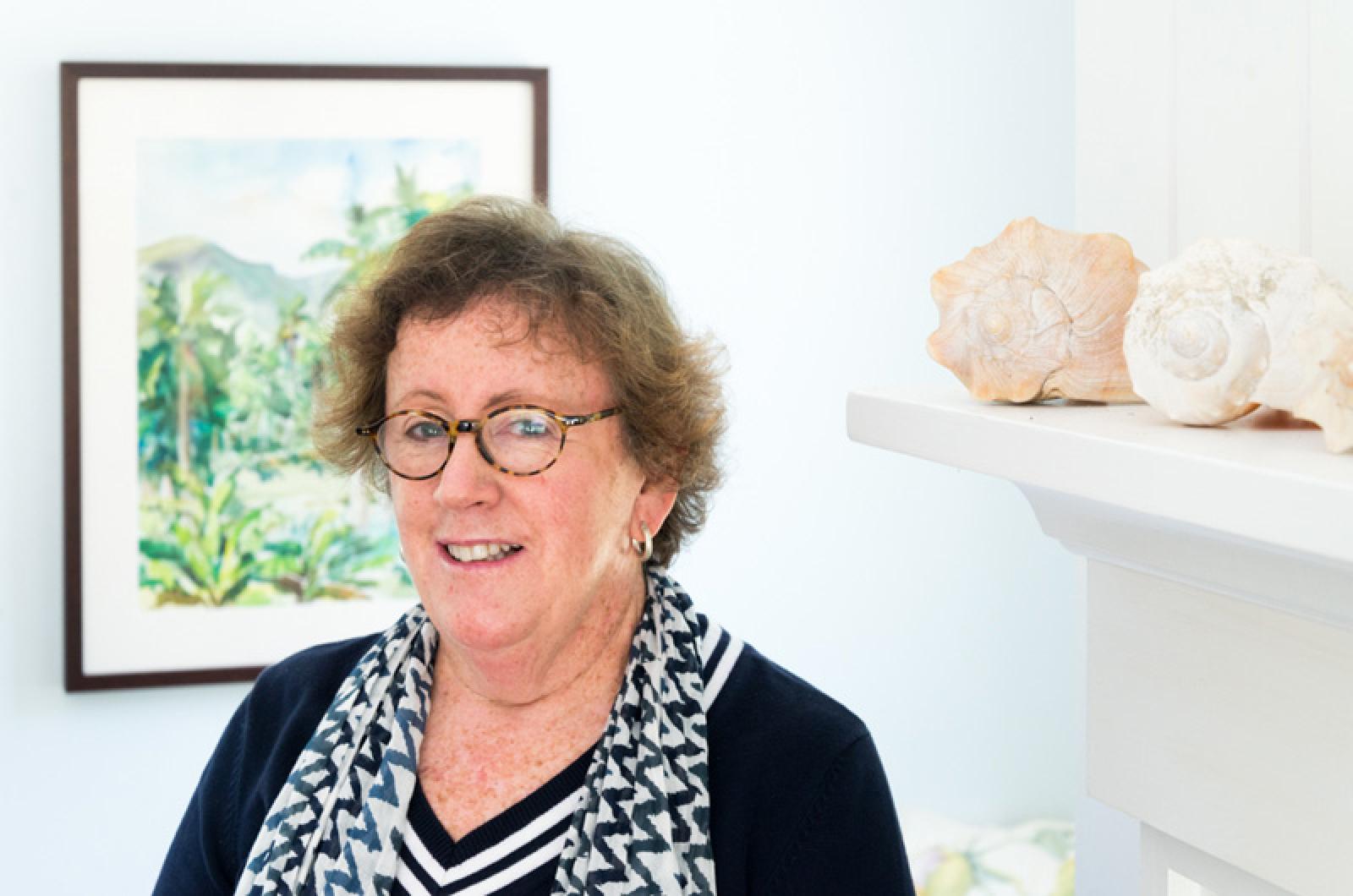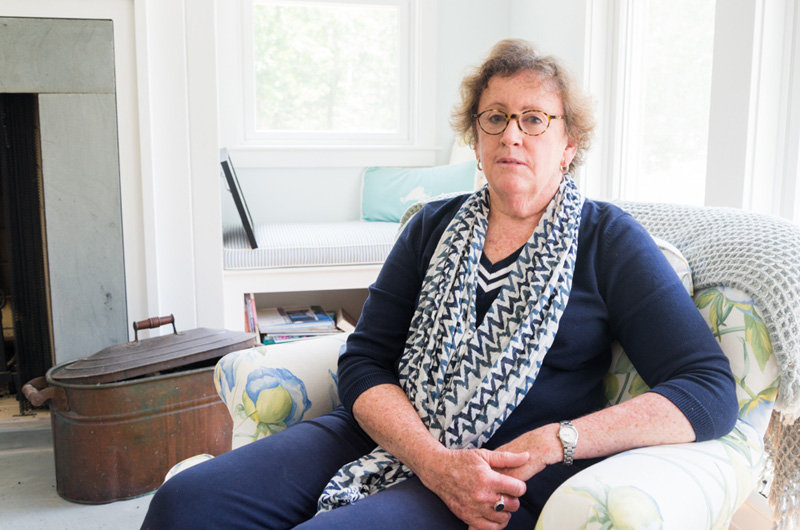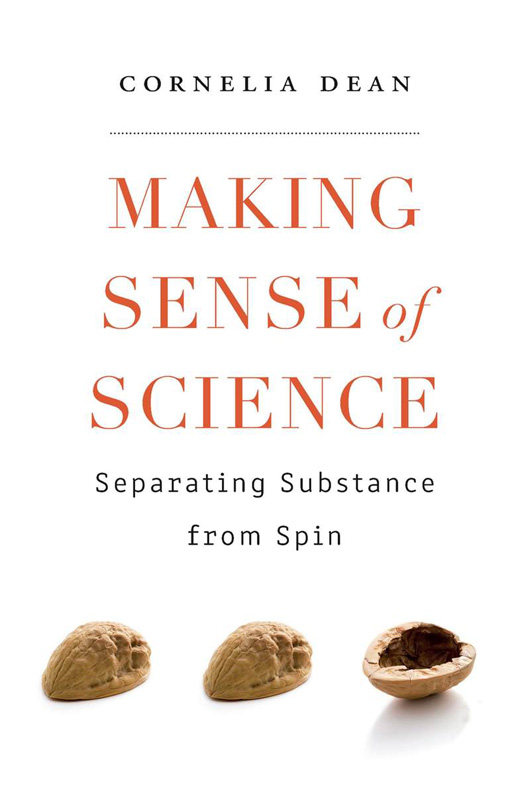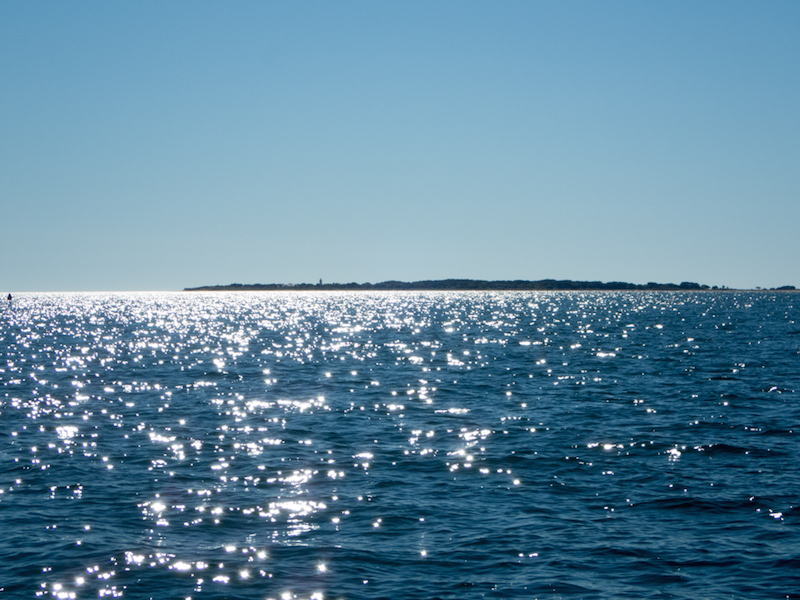In all three of her books, Cornelia Dean, former New York Times science editor, Brown University instructor and Chappaquiddick resident, has campaigned against the misuse of science.
Against the Tide (1999) addressed the tendency of Americans to ignore science and build along the shoreline. Am I Making Myself Clear (2009) is a handbook for scientists to help them communicate better with the media and the general public. Her latest book, Making Sense of Science, published in March of this year, is a paean to rationality in an increasingly irrational world.
Ms. Dean is neither Don Quixote nor Cassandra. While she tells many anecdotes about the abysmal state of science literacy, she regularly returns to the subject of how scientists and journalists can present data and ideas honestly and in a way that can be readily understood.
Earlier this month, Ms. Dean took the time to sit down at Espresso Love in Edgartown to talk about her latest book and her long career. She recalled with a laugh that 30 years ago she was working at the national desk of the New York Times when she happened to walk past a group of editors with an issue of Scientific American under her arm. That was enough to convince the editors that they had found their new science editor.
Ms. Dean, however, had no scientific training. In college she had taken one astronomy course, in which she did not do well.
“[At the Times science department] I was surrounded by people who knew a lot,” she said. “Larry Altman was a physician, Bill Broad had a master’s of science, and John Wilford had no training, but had grown up during the Sputnik era. They would tell me whether something was a big deal or not.”
As is reflected by the subject of her first book, Ms. Dean’s area of focus became environmental issues, particularly coastal environmental issues. Since 2012 she has been teaching science journalism at Brown. This year her course focused on the environment.
“I show them the vernacular,” Ms. Dean said, “how journalism is done, the order of things, what is included and what is not.”
Some students, she said, don’t have an instinctive feel for this because they don’t read journalism.
By teaching science journalism, Ms. Dean is, in effect, walking the walk. She is helping to create scientifically literate writers who will in turn educate the public. In Making Sense of Science she produces plenty of evidence that both American students and their teachers have a lot to learn about science.
“In far too many high schools,” she writes, “science and mathematics are taught not as fascinating fields filled with important problems to be solved, but rather as collections of facts to be memorized and regurgitated.”
In over 30 years of covering the science community one might think Ms. Dean would have made a list of heroes and villains. She has, but it isn’t a list of famous scientists.
“The heroes are the people who persist with an idea when their peers tell them they’re wrong,” she said over a neglected cup of coffee. “Like the middle-school teachers of Dover, Pennsylvania who [in 2004] were required to teach intelligent design. They got into a lawsuit after they refused a superintendent’s order, and they were vindicated by a federal court.”
She also commended all scientists who speak out to the public and minority groups who persist in the face of bias.
Ms. Dean said that the villains are all the people who have stood in the way of the heroes.
She noted another hero, the actor Alan Alda, who founded a center for communicating science at Stony Brook University. Mr. Alda has said that method acting is a way to turn an untalented person into an adequate performer. Regardless of the praise that has been heaped upon her writing, Ms. Dean insisted she considers herself one of Alda’s adequate performers.
“I am first and foremost a journalist,” she said. “My goal is to give the news. It is the same to me regardless of the topic. I think you can be eloquent about the environment or the neutrino.”
It was time to catch the Chappy ferry. As she exited the coffee shop, the former science editor expressed some concern that science sections are disappearing from newspapers and that CNN had done away with environmental reporting.
“It is becoming more difficult to make a living [as a science journalist],” she said. “Journalists are becoming public relations people for the entities they used to cover.”
She thought this was a shame. “There will always be people willing to pay for reliable, timely information.”









Comments (3)
Comments
Comment policy »